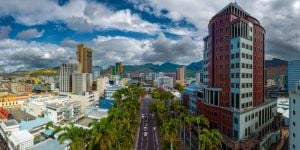
The pandemic has definitely shaken the world. Still, many countries are stepping up policies for economic recovery. Employers are calling for more straightforward measures to hire foreign talent. However, the situation differs from one country to another. So what are the current labour market trends? What are the opportunities for expats around the world?
Europe
In 2022, work rhymes with innovation and high-tech in Europe. A project called "B-Hub for Europe" illustrates the job prospects in this area. It brings together five European ecosystems to facilitate the growth of start-ups via technologies for storing and transmitting information in a fluid, secure way and without the need for a control body. Also called "blockchain", this technology is contributing to developing the bitcoin. Romania, Lithuania, Germany, Italy and France are joining forces to make Europe one of the world's leading markets for blockchain innovation. Computer engineers, mathematical engineers, developers, data scientists, data analysts, traffic managers, e-business consultants, web designers, web admins, multimedia developers, system administrators, digital project managers, cybersecurity experts, User Experience designers (UX designers) are currently the most sought-after positions in this area. However, a mixed economic reality lies under these innovative sectors. France, for example, is unable to get rid of its unemployment rate. Many already fragile sectors have been shattered by the Covid. Healthcare is the sector with the most significant labour shortage in France and worldwide. From Germany to the United Kingdom, including Croatia and Greece, all European countries are facing similar issues. The situation in the Balkans is even more alarming, with a health crisis that is weighing on the health sector, accelerating the demographic decline and brain drain. Croatia is betting on its newly proposed financial benefit to encourage its talents, including returning citizens, to stay, invest, and innovate.
Innovation in logistics is more than welcome, especially in transport, health, construction, trade, agri-food, etc. Germany is a European giant in logistics, with the port of Hamburg being the number 1 in transit, ensuring connections worldwide. Then comes Duisburg, the largest river port in Europe, and its direct links with China. Germany is still looking for qualified employees in port logistics to boost the sector. In France, there are more than 150,000 companies, which means 2 million jobs. But logistics seems to require more performance, considering the nature of work, ecological responsibility, among others factors. Roboticists, engineers, technicians, 3D specialists, etc., are at the heart of this new ecosystem.
Strongly impacted by the pandemic, the film industry is also experiencing a revolution. Lithuania is on its way to becoming Europe's new hub for film production. Despite the pandemic, around fifteen film shootings have already taken place in the country. The phenomenon positively impacts an entire sector: props artists, hairdressers, make-up artists, camera operators, editors, decorators, costume designers, graphic designers, screenwriters, concept artists, 2D/3D animators... Animation professionals are also sought after in France, the leading producer of European animation and 3rd in the world, behind the United States and Japan. In addition, competition between streaming platforms increases professional opportunities worldwide.
Africa
The African Continental Free Trade Area (AfCFTA) was created just a year ago. It intends to concentrate the world's largest market - more than a billion consumers, representing 3.4 billion dollars - by connecting the 54 African countries. It is a unique commercial breakthrough designed to boost the economy, investments, and the development of African industries. Innovation is at the heart of the project. The AfCFTA has a rather optimistic assessment of the year despite the pandemic. 71% of the 400 CEOs surveyed by the AfCFTA say they are ready to invest in the development of Africa, with a common desire: to strive for real pan-Africanization, weave a network of African multinationals to boost all economies and fight against unemployment.
The oil and gas industry remains one of Africa's leading job providers. Sonatrach, a major Algerian oil and gas group, recently announced an investment of 40 billion dollars between 2022 and 2026 in the exploration, production, oil refining, prospecting and extraction of gas. (AFP for Africanews). According to Toufik Hakkar, interviewed by AL24 news, Algerian international television channel, 8 billion dollars will be injected this year. Investments will be followed by many job prospects. In Congo-Brazzaville, the shortage of skilled workers in the oil industry led to the creation of specialised training institutes. Since January 3, the country is at the head of the Organization of Petroleum Exporting Countries (OPEC). Throughout the year, the country is expected to set the pace through innovation in the training of African talent. “If we want to benefit from these natural resources, we must be able to trade in the best possible way. We must be able to ensure the transformation and migration of expertise to a dynamic local sector”, said Bruno Itoua, Minister of Hydrocarbons to Zoomeco (a news website of the Democratic Republic of Congo/DRC). In fact, all of Central Africa is concerned by this labour shortage in the oil sector, especially in key positions. This is why Minister Itoua announced the creation of an African Petroleum Institute in Pointe-Noire, the country's economic capital. The Institute is designed to provide online and face-to-face courses and develop internationally. In addition, the Congolese Minister has signed a partnership with the National School of Petroleum and Engines in France (IFP school). However, no opening date has yet been announced.
Is it possible to combine the growth of the oil industry and the green economy? The African Development Bank (AfDB) already set the tone in June 2021 regarding "climate change and ecology". New environmental challenges must be considered for growth and, therefore, job creation. Labour shortages are being felt in these areas as well. Engineers, climate specialists, physicists, data scientists and analysts, researchers, builders specialising in sustainable materials, qualified technicians, project managers, sales representatives, financiers, biologists, water quality agents, etc., are more than ever needed. Akinwumi Adesina, President of the AfDB, raises a sad paradox: “African countries account for less than 4% of greenhouse gas emissions but suffer the worst effects of climate change". Hence the urgency of investing in human and technical resources to adapt to this new context, such as the large wind farm in Kenya (2019), or the solar power plant in Egypt (2021). The "Electrification of the Desert" and "Great Green Wall" projects (to stem the desertification of Senegal) are still under construction.
Changes have also been brought to the cultural industry, especially cinema and audiovisual, which currently represent 5 million jobs. This figure is expected to rise to 20 million in the coming years. In October 2021, the Pan-African Federation of Filmmakers and UNESCO outlined Africa's new challenge. Concretely, it is a question of preserving the existing resources, investing in infrastructures, developing international partnerships (China, a major partner of Africa, supported the creation of the "first complete cartography film and audiovisual industries). Here again, many career prospects will be available.
Oceania
In Oceania, too, career prospects go hand in hand with innovation. The islands that make up the region also have to face climate change. The volcanic eruption causing the tsunami that hit the Tonga Islands on January 15 sounds like a new warning. There is a direct threat of extinction on the small islands of the Pacific. The submersion of the island of Kale, which is part of the Solomon Islands, reminds us of the need for sustainable action to preserve and save the environment. Through the Alliance of Small Island States (Aosis), these countries have already sent signals worldwide (lastly, at COP26) and are promoting environmentally friendly projects. Technical agents in management and restoration of ecosystems, in charge of naturalist studies, renewable energy development agents, engineers in renewable energy and energy efficiency studies shall soon be the most sought-after professions as Oceania moves towards environmental preservation. The "Kiwa Initiative" has the same spirit. France and the European Union, Canada, Australia and New Zealand initiated the project to adapt to new climate challenges by supporting green projects in the Pacific. These include preserving biodiversity, enhancing local know-how, recruiting local talent, etc. Calls for projects are open until April 4, 2022.
But like African countries, Oceania also tends to lose itself between environmental and economic imperatives. To fight unemployment and support growth, Australian Prime Minister Scott Morrison authorised the expansion of a coal mine in October 2021. It was then the third expansion validated by the country. According to Morrison, with 39,000 jobs created, the coal industry is a major economic pillar that is impossible to ignore, considering recent natural calamities and the pandemic. But David Ritter does not share his views. In his opinion, the recent climatic devastation in Australia and the health crisis require a radical policy
change, which will be beneficial for employment in the long run. “No secure economy will depend on fossil fuels in the future. On the other hand, the climate crisis threatens tens of thousands of jobs in many sectors, such as agriculture or tourism", he says. The Great Barrier Reef alone employs over 60,000 people. The activist also recalls the considerable influence of coal industry lobbies on the government. Meanwhile, the Prime Minister prefers to focus on other job-providing sectors: innovation and technology, education, health, construction, IT, skilled technical jobs (skilled worker, plumber, electrician, welder. ..).
In a completely different area, New Zealand is concerned about the rise of Chinese influence in the South Pacific. This pushed the country to strengthen its security system. However, it communicates less about its labour needs in this area. New Zealand is thus trying to redefine its strategy in a field that is now subject to strong pressure.
Asia
In Asia, the main challenges are demographic and climatic emergency, low growth, political instability, war threats, etc., against a backdrop of the health crisis. Like other countries, Asian countries are also making significant efforts to trigger growth. But what is their action plan? Already in crisis for many years, Lebanon sank into chaos following the double explosion of August 4, 2020. The labour market was hit by an unprecedented crisis. In March 2020, a group of Lebanese expatriates launched "Jobs for Lebanon", a unique platform allowing Lebanese freelancers to get in touch with recruiters from all over the world for remote jobs.
Russia is torn between its eastern part, located in northern Asia (eastern and northern regions), and its western part is attached to Europe (western regions and north). In fact, the Western region is home to the most significant population. Still, natural resources are found all over the country. A global leader in the gas and oil industry, Russia also stands out in the production of diamonds, nickel and platinum. Add to this the chemical, metallurgical and mechanical industries inherited from the Soviet era. Industry thus employs nearly a third of the Russian population and accounts for more than 30% of GDP. But this does not mean that inequalities are non-existent. The Russian paradox is that the country's wealth does not reach the population, especially in the western and northern regions. The pandemic has only worsened inequalities.
Inequalities are also on the rise in China despite the president's call, in August 2021, to the wealthy Chinese to make efforts. The president even engaged himself in the "adjustment" of too high incomes. However, his favourite topic seems to be the creation of 12 million jobs in 2021. Digital and technological innovation, industry, etc., drive the "Made in China" spirit. According to Gao Gao, a senior official of the National Development and Reform Commission, China can boast around 200 million skilled workers and 50 million highly skilled workers, considered ambassadors and pillars of a solid, innovative, united, modern China. Japan, on the other hand, is being rather cautious. The pandemic has considerably slowed down recruitment plans. According to a survey by the news media Nippon.com in 2019, 50.6% of companies were keen to hire foreign talent the following year. But then Covid happened. In 2021, only 39.2% of them were considering the recruitment of foreigners, especially in the innovative and/or highly technical, skilled professions that were more resistant to the crisis. In Japan, too, innovation is the keyword: robotics, engineering professions, IT, artificial intelligence, data science, data analysis, etc., are the most promising fields... Leader in robotics, the country intends to relieve its ageing population (nearly a third of the inhabitants) thanks to robots, especially in retirement homes, hospitals, etc. As a result, humanoids are settling in and occupying positions that are no longer filled by humans (Indeed, Japan is in critical need of employees in the field of human services). On the other hand, robots are also used in industry (exoskeletons, high-tech machines), services, research, agri-food, etc. Their presence even contributes to inclusion, allowing employees with disabilities to work remotely. Still, finance, banking and insurance are some of the professions that require talents. In short, the labour shortage is a reality in Japan as well.
In the United Arab Emirates, especially in Dubai, finance, marketing, communication, and IT are the most in-demand professions. Through a series of communication campaigns, the country has become a haven for many expats seeking to escape the pandemic and health restrictions around the world. But the UAE relies primarily on highly qualified professionals: IT engineers, marketing directors, financiers, production managers, community managers, SEO managers, data scientists and analysts, e-commerce managers, digital transformation experts, doctors... Although the global health crisis has had a significant impact on the UAE's labour market, the Expo Dubai, which began in October 2021 and ends next March, should also boost the construction, real estate and renewable energy markets.
Americas
The economy has almost crashed in Brazil, and the labour market is struggling. A similar situation has been noted in Argentina. Still, a few sectors, especially the most innovative ones, are keeping pace. For example, fintech, banking and finance, e-commerce, communication and marketing, etc., need skilled employees. However, most of the career prospects are found in North America. Canada, for instance, is ready to welcome up to 400,000 immigrants. The government should include this in its 2022-2024 immigration plan, which will be presented in February, but the figures were already revealed in October 2020. Whether the government changes its position or not, Canada is always going to need international talent. For the first quarter of 2021 alone, more than 550,000 jobs remained vacant (150,000 in Quebec). Transport, logistics, agri-food, agriculture, fishing, health, retail and wholesale, construction, health, administration, IT, graphics and design, architecture, engineering, etc., are some of the sectors under pressure.
In the United States, the private sector created more than 6 million jobs in 2021. But like Canada, the country suffers from a labour shortage in key sectors like healthcare, agri-food, retail trade, etc. Like other countries, the United States is also prioritising innovation and high technology to boost its economy. Most of the vacancies are in IT, engineering, finance, communication, and the high-tech industry. Video games are another booming market, although it is not often mentioned in the media. The market grew by +30% in 2021 alone. According to the American research agency, NPD Group, in 2021, the games with the most significant sales worldwide were Call of Duty, made in the US. Design/creation (concept artist, game designer, character designer, sound designer, game artist, etc.), IT (mobile programmer, developer, 3D programmer, 3D animator, 3D modeller, technical director, etc.) marketing (project manager, community manager, data scientist, brand manager, production manager, etc.), e-sport (professional gamer, streamer, event organiser, business developer, coach, manager, ambassador, etc.), are currently the most in-demand jobs in the US. Online streaming platforms are also booming, offering a range of career prospects.
So shaken by the global health crisis, most countries are looking to innovation, new technologies and sustainable development to revive their labour markets and boost their economies. Governments are faced with the challenge of reducing inequality and unemployment while promoting sustainable jobs. But if you are a professional looking to build a career abroad, the world is full of opportunities for those who dare.



















